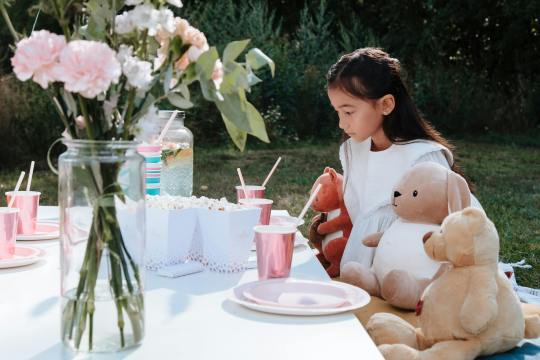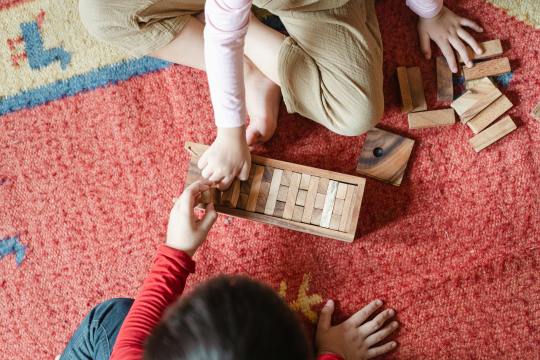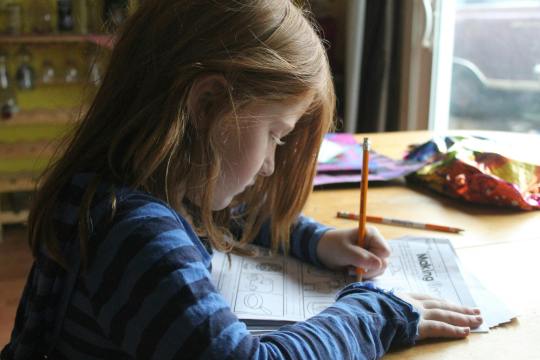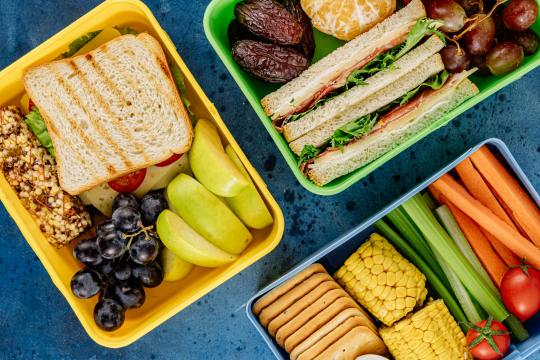JoyfulHut is a vibrant space dedicated to providing valuable parenting tips, lifestyle advice, and inspiration for creating a happy and balanced life. Whether you’re a parent looking for practical guidance, lifestyle inspiration, or fun activities for your family, JoyfulHut offers a range of content to help you live joyfully and make the most of your everyday moments.
Don't wanna be here? Send us removal request.
Text
Tasty Summer Snacks for Picnics

When the sun is shining and the weather is warm, there’s no better way to spend the day than enjoying a fun family picnic. To make your outdoor adventure even more memorable, packing a spread of tasty summer snacks is essential. Whether you’re heading to the park, the beach, or your own backyard, having delicious and easy-to-pack food will keep everyone happy and energized. If you’re looking for inspiration, these Summer Picnic Food Ideas for Families will make your outing a hit.
Fresh Fruit Skewers Nothing says summer like fresh, juicy fruit! Fruit skewers are colourful, healthy, and incredibly easy to prepare. Simply thread a variety of fruits like strawberries, grapes, pineapple, and melon onto wooden sticks. These portable snacks are sweet, refreshing, and perfect for little hands. For an extra touch, bring a yogurt dip on the side.
Veggie Wraps Light and satisfying, veggie wraps are a fantastic option for a summer picnic. Use whole wheat tortillas and fill them with hummus, sliced cucumbers, bell peppers, shredded carrots, and fresh spinach. Add a sprinkle of feta cheese or a drizzle of vinaigrette for extra flavour. Wrap them tightly and slice them into bite-sized pieces for easy sharing.
Cheese and Cracker Platter A simple cheese and cracker platter is always a crowd-pleaser. Pack an assortment of cheeses, whole-grain crackers, and some sliced summer sausage or turkey. Add a handful of grapes or apple slices for a sweet contrast. This snack is not only easy to assemble but also offers a satisfying mix of textures and Flavors.
Pasta Salad Cups Pasta salad is a picnic staple, and serving it in individual cups makes it even more convenient. Prepare a simple salad with cooked pasta, cherry tomatoes, cucumbers, black olives, and feta cheese. Toss it with a light vinaigrette and portion it into reusable cups or small containers. These ready-to-eat servings eliminate the need for extra plates and make cleanup a breeze.
Homemade Trail Mix For a crunchy, satisfying snack, homemade trail mix is a perfect choice. Combine nuts, dried fruits, pretzels, and a handful of chocolate chips for a sweet and salty blend. You can customize it to suit your family’s tastes and make individual snack bags for easy munching throughout the day.
Mini Sandwiches Mini sandwiches are ideal for picnics because they’re portable and easy to eat. Use small rolls or slider buns and fill them with classics like turkey and cheese, chicken salad, or caprese (mozzarella, tomato, and basil). Wrap them in parchment paper to keep them fresh and mess-free.
No-Bake Energy Bites For a healthy, sweet treat, no-bake energy bites are the way to go. Made with oats, peanut butter, honey, and a sprinkle of chocolate chips, these bite-sized snacks are packed with flavour and nutrients. They’re easy to prepare ahead of time and perfect for satisfying sweet cravings on the go.
With these tasty Summer Picnic Food Ideas for Families, your outdoor gathering will be filled with delicious, fuss-free treats. From fresh fruits and veggies to satisfying bites and sweet snacks, there’s something for everyone to enjoy. So, grab a blanket, pack your basket, and get ready to make some wonderful summer memories!
0 notes
Text
5 Powerful Ways to Help Kids Manage Their Worries

Worry and fear are natural parts of childhood, but when those feelings become overwhelming, they can interfere with a child’s ability to learn, grow, and enjoy life. As parents and caregivers, it’s important to equip children with the right tools to face their fears and manage their worries. Here are 5 Ways to Help Kids Face Their Fear and manage their worries and build confidence.
1. Encourage Open Communication One of the most effective ways to help kids manage their worries is by creating a safe space for open communication. Encourage your child to talk about their fears and listen without judgment. When children feel heard and understood, their anxiety often lessens. Use gentle questions like, “What’s making you feel worried?” or “Can you tell me more about what’s bothering you?” This approach not only helps kids articulate their emotions but also reassures them that they’re not alone in facing their fears.
2. Help Them Identify Their Fears Before children can manage their worries, they need to understand what’s causing them. Help your child identify their specific fears and describe them in detail. Whether it’s fear of the dark, anxiety about school, or worry about making new friends, naming the fear is the first step toward addressing it. This process also helps children feel more in control, as they begin to see their fears as something they can manage rather than something that controls them.
3. Teach Coping Strategies Equipping children with practical coping strategies empowers them to handle their worries in the moment. Breathing exercises, visualization, and positive self-talk are all effective tools. Teach your child to take deep breaths when they feel anxious, imagining their worries floating away with each exhale. Visualization can also help—ask them to picture a safe, happy place whenever they feel scared. Encourage positive self-talk with affirmations like, “I am brave,” or “I can handle this.”
4. Gradual Exposure to Fears Avoiding fear can make it grow, so it’s important to gently and gradually expose children to the things they’re afraid of. If your child is afraid of dogs, for example, start by looking at pictures of dogs, then watch videos, and eventually observe a calm dog from a distance. Take small, manageable steps toward facing the fear, offering plenty of encouragement and praise along the way. This method helps children build confidence and realize that their fears are often not as scary as they seem.
5. Be a Calm and Supportive Role Model Children often take cues from the adults around them, so modelling calm and confident behaviour can help them manage their own worries. Show your child how you handle stress and fear by using healthy coping mechanisms. Practice patience and empathy, and avoid dismissing their fears as silly. Instead, acknowledge their feelings while reassuring them that they have the strength to overcome their worries.
Helping children manage their worries takes time, patience, and understanding. By using these 5 ways to help kids face their fear, you’ll empower them to navigate life’s challenges with confidence and resilience. With your support, they’ll learn that while fear is natural, it doesn’t have to hold them back.
0 notes
Text
Fun and Engaging Activities for Kids and Parents

Spending quality time with your children is essential for building strong family bonds and creating lasting memories. Whether indoors or outdoors, fun family activities for kids can bring joy, laughter, and learning experiences for everyone involved. Here are some exciting and engaging activities that parents and kids can enjoy together
1. Outdoor Adventures
Outdoor activities provide a great way for families to stay active and enjoy nature. Here are some exciting ideas:
Picnic in the Park: Pack some homemade snacks, grab a blanket, and head to a nearby park for a relaxing and fun-filled afternoon.
Nature Scavenger Hunt: Create a list of natural objects like leaves, flowers, or stones and let the kids find them. It’s a great way to explore and learn about nature.
Cycling or Roller Skating: Enjoy a bike ride or roller skate together on a safe path. It’s a fun and healthy activity that kids love.
Camping in the Backyard: Set up a tent, makes mores, and tell stories under the stars. It gives kids the excitement of camping without leaving home.
2. Creative Indoor Activities
When the weather isn’t ideal for outdoor fun, try these engaging indoor activities:
DIY Arts and Crafts: Create greeting cards, paint a picture, or make handmade decorations. Arts and crafts allow kids to express their creativity while having fun.
Cooking Together: Let your kids help in the kitchen with simple recipes like baking cookies or making sandwiches. It teaches them basic cooking skills and responsibility.
Storytelling and Puppet Shows: Encourage kids to create their own stories and act them out using puppets or stuffed toys. It enhances their imagination and communication skills.
Board Games and Puzzles: Family game nights with classic board games like Monopoly, Scrabble, or Jenga are perfect for fun and bonding.
3. Educational and Interactive Activities
Learning can be fun when done in an engaging way. Here are some activities that make education enjoyable:
Science Experiments at Home: Try simple experiments like making a volcano with baking soda and vinegar or growing plants in jars.
Reading Together: Choose interesting books and read aloud with your kids. It improves their language skills and develops a love for reading.
Treasure Hunt: Hide small treasures around the house and give kids clues to find them. It’s a fun way to boost their problem-solving skills.
DIY Home Theatre: Watch an educational or animated movie together and discuss the story afterward.
4. Music and Dance Activities
Music and dance bring energy and joy to any family gathering. Try these ideas:
Karaoke Night: Sing along to your favourite songs and have a mini concert at home.
Dance Party: Play upbeat music and have a fun dance-off with your kids.
Learning a Musical Instrument: Encourage kids to play simple tunes on a keyboard, guitar, or drums.
Conclusion
Spending time together as a family through fun family activities for kids not only strengthens relationships but also enhances creativity, learning, and happiness. Whether indoors or outdoors, these activities ensure a memorable and enjoyable time for both parents and children. So, pick an activity today and make wonderful memories with your little ones!
0 notes
Text
The Power of Parenting: How Good Upbringing Shapes Society

Parenting is more than just providing food, shelter, and education—it is about shaping the future of society. The way children are raised determines their behavior, values, and contributions to the world. Good parenting fosters responsible, empathetic, and disciplined individuals who play a crucial role in building a peaceful and progressive society. The effects of good parenting on society are far-reaching, influencing everything from crime rates to economic stability and social harmony.
The Role of Parenting in Character Development
Children learn the most from their parents. Values like honesty, kindness, and respect are instilled at home and reflect in their actions as they grow. A child raised with love and discipline is more likely to become a responsible adult who contributes positively to society. When parents model good behaviour, children naturally adopt those traits, leading to a more ethical and moral society.
Better Emotional and Mental Health
One of the significant effects of good parenting on society is emotional stability. Children raised in a nurturing environment develop high self-esteem and resilience. They learn how to manage stress, communicate effectively, and build healthy relationships. As a result, society benefits from emotionally strong individuals who contribute to social harmony and mental well-being.
Stronger Family and Community Bonds
Good parenting promotes strong family ties, which extend to the community. When parents teach their children the importance of cooperation, compassion, and helping others, these values spread throughout society. Such individuals grow up to support their neighbors, contribute to community welfare, and create a positive social atmosphere.
Educational Success and Economic Growth
Education is another critical aspect influenced by parenting. Children raised in a supportive environment perform better in school and pursue higher education. This leads to a well-educated workforce, fostering innovation, economic stability, and national progress. The foundation of a thriving economy lies in well-raised individuals who contribute their skills and knowledge for the greater good.
Reduced Crime Rates and Ethical Leadership
Good parenting plays a crucial role in reducing crime rates. Children raised with discipline, values, and guidance are less likely to engage in unlawful activities. They grow into responsible citizens who respect laws and contribute to the nation's safety. Furthermore, strong parenting helps shape ethical leaders who drive positive change, ensuring a just and fair society.
Promoting Gender Equality and Social Justice
Parents who teach their children about equality, fairness, and respect contribute to a more inclusive society. When children grow up understanding the importance of equal rights and opportunities, they help break societal stereotypes and promote social justice, making the world a better place for everyone.
Conclusion
The effects of good parenting on society are profound and long-lasting. When children receive proper guidance, love, and education, they grow into responsible individuals who strengthen families, communities, and nations. Good parenting is the foundation of a peaceful, prosperous, and progressive world. By investing in the right values and upbringing, parents shape a future filled with hope, harmony, and success.
0 notes
Text
How to Build a Daily Routine for Kids That Works

Parenting is a journey filled with love, joy, and countless responsibilities. One of the key aspects of parenting is creating a structured daily routine for kids. A consistent schedule helps children feel secure, stay organized, and learn essential life skills. Whether your child is a toddler, preschooler, or school-going, a daily routine can work wonders in fostering their overall development.
Here’s a step-by-step guide to help you build a daily routine that truly works for your kids:
1. Understand Your Child’s Needs
Every child is unique, and so are their needs. Start by observing your child’s habits, energy levels, and preferences throughout the day. Some children are more active in the morning, while others have a burst of energy in the afternoon. Understanding these patterns will help you design a routine that aligns with their natural rhythm.
2. Start with the Basics
Include essential activities in the routine, such as meals, sleep, study time, and playtime. These are the building blocks of a child’s day and should be prioritized. For example, set specific times for breakfast, lunch, and dinner. Ensure your child gets enough sleep by establishing a consistent bedtime.
3. Incorporate Learning and Play
Children thrive when there’s a balance between learning and play. Allocate time for educational activities, such as reading, homework, or creative projects. Equally important is free playtime, where kids can explore their imagination and unwind. Structured play, like sports or puzzles, can also be included.
4. Add Responsibilities Gradually
As your child grows, involve them in age-appropriate chores. Simple tasks like tidying up toys, setting the table, or watering plants can teach them responsibility and independence. These small activities can easily fit into their daily routine.
5. Keep It Flexible
While structure is essential, flexibility is equally important. Unexpected events or changes can disrupt the routine, and that’s okay. Teach your child to adapt while maintaining a general sense of order. A flexible routine ensures kids don’t feel overwhelmed or restricted.
6. Make It Fun and Engaging
Turn routine activities into enjoyable moments. For instance, create a fun bedtime ritual with a story or song. Use colourful charts or stickers to track daily tasks, making the routine visually appealing for younger kids.
7. Model the Behaviour
Children learn by observing their parents. If you want your child to follow a routine, lead by example. Show them the importance of time management by adhering to your schedule and being consistent.
8. Review and Adjust
As your child grows, their needs and interests will change. Regularly review the routine and make adjustments to accommodate new activities or priorities. This ensures the routine remains effective and relevant.
Benefits of a Structured Daily Routine for Kids
Creating a structured daily routine for kids has numerous benefits. It fosters a sense of stability, builds discipline, and reduces stress for both children and parents. Predictability helps kids feel in control, promoting emotional well-being. Moreover, it nurtures healthy habits and strengthens family bonds.
In conclusion, a well-designed routine is the cornerstone of a balanced and happy childhood. By creating a structured daily routine for kids, parents can provide a nurturing environment where children thrive and grow into confident, independent individuals. Start building your child’s routine today, and watch them flourish!
0 notes
Text
Unlocking Growth: 10 Benefits of Reading to Young Children Every Day

Reading to young children daily is one of the most impactful ways to nurture their development and strengthen your bond as a parent. Beyond the immediate joy of Storytime, this practice offers numerous long-term advantages. Let's explore 10 remarkable Benefits of Reading to Young Children Daily that can shape their lives in profound ways.
1. Boosts Language Development
Daily reading helps children expand their vocabulary and understand sentence structure. They learn new words and phrases, enhancing their ability to communicate effectively. Even at a young age, exposure to language through books accelerates their ability to express themselves.
2. Encourages Imagination and Creativity
Storybooks transport children to different worlds, stimulating their imagination. As they visualize characters, settings, and scenarios, they develop creative thinking, which can positively influence their problem-solving abilities.
3. Enhances Cognitive Skills
Reading improves cognitive development by introducing children to new concepts like numbers, colours, and shapes. It also strengthens memory and analytical skills as they follow plots and remember details from previous stories.
4. Builds a Strong Parent-Child Bond
Storytime is an intimate activity that fosters closeness. It provides a dedicated opportunity to connect, laugh, and share moments, strengthening your relationship while offering emotional security to your child.
5. Improves Attention Span and Focus
Regular reading sessions help young children develop their ability to concentrate and focus. Listening to stories requires them to sit still and follow the narrative, which is essential for their attention span and self-discipline.
6. Prepares for Academic Success
Children exposed to books early are more likely to excel in school. Familiarity with reading patterns and comprehension gives them a head start in literacy, math, and other subjects, laying a strong foundation for academic success.
7. Installs a Love for Reading
Reading to young children daily cultivates a lifelong love for books. Early exposure makes them view reading as an enjoyable activity rather than a chore, encouraging them to explore literature as they grow.
8. Develops Emotional Intelligence
Books often introduce themes of empathy, kindness, and understanding. By identifying with characters and their emotions, children learn to recognize and manage their own feelings, fostering emotional intelligence.
9. Promotes Better Sleep
Bedtime reading creates a calming routine that helps children relax and prepare for sleep. The soothing rhythm of your voice and the comfort of familiar stories make it easier for them to drift off peacefully.
10. Encourages Lifelong Learning
Reading sparks curiosity and a thirst for knowledge. It introduces children to diverse topics and inspires them to ask questions, setting the stage for continuous learning throughout their lives.
Final Thoughts
The Benefits of Reading to Young Children Daily extend far beyond the pages of a book. It is a simple yet powerful way to shape their intellectual, emotional, and social growth while creating memories that will last a lifetime. Start incorporating daily reading into your routine and watch your child thrive in unimaginable ways.
What book will you pick for your child today?
0 notes
Text
Understanding Toddler Tantrums: Tips to Stay Calm and in Control

Parenting a toddler is a joyful journey filled with milestones, laughter, and love. However, it also comes with its fair share of challenges, one of the most common being toddler tantrums. These emotional outbursts can leave parents feeling helpless and frustrated. Understanding why tantrums occur and how to manage them effectively is key to navigating this phase of parenting.
Why Do Toddler Tantrums Happen?
Tantrums are a normal part of childhood development. They often occur because toddlers are still learning to express themselves and manage their emotions. Here are some common triggers for tantrums:
Frustration: Toddlers may feel upset when they can’t communicate their needs or complete a task on their own.
Hunger or Tiredness: Basic needs like food and sleep significantly impact a toddler’s mood and behaviour.
Seeking Attention: Sometimes, toddlers throw tantrums to gain their caregiver’s focus.
Testing Boundaries: As they grow, toddlers begin to test limits, which can lead to emotional outbursts.
Tips for Handling Toddler Tantrums
Managing tantrums requires patience, understanding, and a consistent approach. Here are some practical tips to stay calm and in control:
Stay Calm: Your reaction to a tantrum sets the tone for how your child responds. Take deep breaths and remain composed. This helps de-escalate the situation.
Acknowledge Feelings: Let your toddler know you understand their emotions. For example, say, “I see you’re upset because you wanted the toy.” Validating their feelings helps them feel heard and understood.
Distract and Redirect: If possible, redirect your child’s attention to something else. Engage them with a toy, activity, or a change of environment to shift their focus.
Set Clear Boundaries: Consistency is essential in handling toddler tantrums. Establish clear rules and enforce them gently but firmly. For example, if throwing objects isn’t allowed, calmly remind them of the rule.
Offer Choices: Empower your toddler by giving them simple choices. For example, ask, “Do you want to wear the blue shirt or the red shirt?” This reduces frustration and gives them a sense of control.
Teach Emotional Regulation: Over time, help your toddler identify and name their emotions. Use phrases like, “You’re feeling angry because you wanted more time to play.” Teaching emotional awareness equips them to handle their feelings better as they grow.
Be Prepared: Avoid tantrum triggers by planning ahead. Carry snacks, ensure your toddler gets enough rest, and try to anticipate situations that might lead to frustration.
After the Tantrum
Once the tantrum subsides, comfort your child and discuss what happened. Use simple language to explain why certain behaviours are not acceptable and reinforce positive actions. This helps your child learn from the experience and strengthens your bond.
Final Thoughts
Handling toddler tantrums is not about eliminating them altogether but about responding in a way that teaches your child important life skills. Remember, tantrums are a normal part of development and a sign that your child is learning to navigate their emotions. With patience, empathy, and consistency, you can turn these challenging moments into opportunities for growth and connection. Parenting may not always be easy, but each step forward is a victory worth celebrating.
0 notes
Text
Raising Happy Kids: A Guide to Positive Parenting in Early Childhood

Early childhood is a critical phase in a child's life, shaping their personality, values, and overall outlook. As parents, we play a crucial role in providing a nurturing environment for our kids to thrive. Encouraging positive parenting in early childhood is the cornerstone of raising happy, well-rounded children.
What is Positive Parenting?
Positive parenting focuses on fostering a supportive and loving relationship with your child. It emphasizes respect, communication, and understanding rather than punishment or criticism. By adopting positive parenting strategies, you can help your child develop confidence, resilience, and emotional intelligence.
The Importance of Encouraging Positive Parenting in Early Childhood
The early years of a child’s life lay the foundation for their future. Positive parenting during this period helps in:
Building Strong Emotional Bonds: Loving interactions strengthen the parent-child connection, which is essential for emotional security.
Developing Healthy Habits: Positive reinforcement encourages good behaviour and instils self-discipline.
Fostering Confidence: Supportive parenting boosts a child's self-esteem and helps them explore their potential.
Enhancing Social Skills: A nurturing environment teaches children empathy, communication, and cooperation.
Practical Tips for Raising Happy Kids
1.Show Unconditional Love Let your child know they are loved and valued, regardless of their actions. A simple hug, kind words, or quality time together can go a long way in building their self-worth.
2.Communicate Openly Encourage your child to express their feelings and listen to them without judgment. Open communication fosters trust and helps your child feel understood.
3.Set Clear Expectations Establish boundaries that are firm but fair. Clearly explain what behaviour is acceptable and what is not. Use positive reinforcement to encourage good habits.
4.Model Positive Behaviour Children learn by observing. Demonstrate kindness, patience, and respect in your actions. This sets an example for them to follow.
5.Encourage Independence Allow your child to make choices appropriate for their age. This builds their decision-making skills and confidence in their abilities.
6.Practice Patience and Empathy Every child is unique and may not always behave as expected. Show empathy by understanding their perspective and addressing their needs calmly.
7.Celebrate Milestones Acknowledge and celebrate your child's achievements, no matter how small. This boosts their confidence and motivates them to keep improving.
Overcoming Challenges
Parenting isn’t always easy, but a positive approach can help you navigate challenges more effectively. Instead of focusing on mistakes, view them as opportunities to teach and grow. Remember, consistency is key—sticking to positive practices over time yields the best results.
Final Thoughts
Encouraging positive parenting in early childhood is a rewarding journey that requires patience, love, and commitment. By creating a supportive and nurturing environment, you set the stage for your child to grow into a happy, confident, and capable individual. Start small, stay consistent, and watch your little one flourish!
Raising happy kids isn’t just about meeting their physical needs; it’s about creating a bond that lasts a lifetime. Embrace positive parenting and be the guiding light in your child’s early years.
0 notes
Text
Top 5 Skills Every Positive Parent Should Cultivate

Parenting is a journey filled with joy, challenges, and endless learning opportunities. Positive parenting focuses on creating a nurturing environment where children feel valued, supported, and empowered to grow into their best selves. To succeed in this journey, parents need to develop key skills that enhance their ability to connect, guide, and support their children effectively. So, what are the 5 positive parenting skills every parent should cultivate? Let’s dive in!
1.Active Listening
One of the most crucial skills in positive parenting is active listening. It involves giving your child your full attention, understanding their emotions, and validating their feelings. When children feel heard, they are more likely to open up and share their thoughts and concerns.
To practice active listening:
Make eye contact when your child is speaking.
Avoid interrupting or jumping to conclusions.
Respond with empathy, such as saying, “I understand how you feel.”
By actively listening, you show your child that their voice matters, fostering trust and mutual respect.
2.Effective Communication
Positive communication is the cornerstone of a healthy parent-child relationship. It goes beyond giving instructions or correcting behaviour; it involves explaining the "why" behind decisions and setting clear expectations.
For example, instead of saying, “Don’t touch that!” try, “That’s hot and can hurt you. Let’s find something safe to play with.”
This approach not only teaches children about boundaries but also encourages cooperation and understanding.
3. Consistency and Boundaries
Children thrive in an environment with clear rules and consistent boundaries. Being consistent helps children understand what is expected of them, reducing confusion and misbehavior.
To implement this skill:
Establish clear household rules and consequences.
Follow through with what you say, whether it’s a reward or a consequence.
Be fair and flexible when needed, considering the child’s age and situation.
Consistency builds a sense of security, making it easier for children to learn self-discipline and accountability.
4. Patience and Empathy
Parenting often tests your patience, but staying calm and empathetic in challenging moments is essential. Understanding your child’s perspective helps you respond constructively rather than react emotionally.
For example, if your child throws a tantrum, instead of yelling, try to identify the reason behind their frustration and address it calmly.
Empathy strengthens your bond with your child, showing them that you care about their feelings and experiences.
5. Positive Reinforcement
Celebrating your child’s achievements, no matter how small, boosts their self-esteem and motivates them to keep trying. Positive reinforcement focuses on acknowledging good behaviour rather than punishing mistakes.
You can use:
Verbal praise, such as “Great job cleaning up your toys!”
Physical gestures like hugs or high-fives.
Rewards like stickers or extra playtime for consistent good behaviour.
Positive reinforcement helps children develop confidence and encourages them to make better choices.
Conclusion
Parenting is a continuous learning process, and cultivating these five skills can make a significant difference in your journey. By practicing active listening, effective communication, consistency, patience, and positive reinforcement, you can build a strong, loving, and supportive relationship with your child.
So, the next time someone asks, what are the 5 positive parenting skills, remember these essential tools. They are not only the foundation of positive parenting but also the key to raising happy, confident, and responsible children.
0 notes
Text
Work-from-Home Success: Balancing Career and Life

The concept of working from home has gained immense popularity in recent years, offering flexibility and the comfort of working in familiar surroundings. However, this shift also brings challenges such as distractions, blurred boundaries, and maintaining productivity. If you're wondering how to manage work from home effectively while balancing career and life, here are some practical tips to help you succeed.
1. Create a Dedicated Workspace
The first step in managing work from home is setting up a dedicated workspace. This doesn’t mean you need an elaborate home office; a simple, clutter-free desk in a quiet corner can work wonders. Your workspace should be comfortable, well-lit, and free from distractions to help you focus on your tasks.
2. Stick to a Schedule
One of the biggest challenges of working remotely is the temptation to work at odd hours or procrastinate. To overcome this, establish a daily routine. Start your workday at a fixed time, take regular breaks, and end the day at a consistent hour. A clear schedule helps you stay productive and ensures you have time to relax and recharge.
3. Set Boundaries with Family and Friends
When working from home, it’s essential to communicate with your family or roommates about your work schedule. Let them know when you’re available and when you need uninterrupted time to focus on your tasks. Setting boundaries helps minimize distractions and maintains a professional approach to your work.
4. Take Care of Yourself
Balancing career and life while working from home requires paying attention to your physical and mental well-being. Start your day with a healthy breakfast, drink plenty of water, and incorporate some form of exercise into your routine. Simple activities like stretching or a short walk can boost your energy and keep you motivated.
Additionally, practice mindfulness or meditation to manage stress. Working from home can sometimes feel isolating, so staying connected with colleagues and friends through virtual meetings or casual chats can uplift your mood.
5. Use Technology Wisely
Leverage technology to make your work-from-home experience smoother. Use tools like project management software, video conferencing platforms, and cloud storage to stay organized and collaborate effectively with your team. However, avoid getting overwhelmed by unnecessary notifications or spending too much time on social media.
6. Define Work-Life Boundaries
To achieve work-life balance, it’s crucial to separate your professional and personal life. When your workday ends, turn off work-related notifications and focus on personal activities. Engage in hobbies, spend time with family, or simply relax to recharge for the next day.
Final Thoughts
Learning how to manage work from home effectively is a skill that takes time and practice. By creating a routine, setting boundaries, and taking care of your well-being, you can enhance productivity and maintain a healthy balance between your career and personal life.
Remember, working from home offers the flexibility to design your day according to your needs. Embrace this opportunity to create a harmonious work-life balance that keeps you both happy and successful.
0 notes
Text
The Role of Parenting Styles in Shaping a Child’s Future: Insights and Impacts

Parenting is a crucial part of raising children and plays a key role in their growth. How parents’ guide, support, and discipline their children can affect their overall development. The impact of parenting style on child development is a topic that explains how parents’ behavior and interactions shape their child’s personality, behavior, and future choices.
Types of Parenting Styles
Experts generally categorize parenting into four types:
Authoritative Parenting: This style combines clear rules with support and understanding. Parents provide guidance while encouraging independence. This approach often helps children develop self-confidence, discipline, and good decision-making skills.
Authoritarian Parenting: In this style, parents enforce strict rules and expect obedience without much discussion. While this may teach discipline, it may also lead to children feeling fearful or less confident.
Permissive Parenting: Permissive parents are lenient and do not enforce many rules. They often allow children to make their own decisions without much guidance. This can lead to children lacking discipline or structure in their lives.
Uninvolved Parenting: This style involves minimal involvement in the child’s life. Parents provide basic needs but are emotionally or physically unavailable. This can affect a child’s emotional development and sense of security.
How Parenting Styles Affect Development
Emotional Development: The way parents interact with their children impacts their emotional growth. For example, children raised by authoritative parents tend to feel secure and understood. On the other hand, those raised by authoritarian or uninvolved parents may struggle with expressing their emotions.
Social Skills: Parenting styles also shape how children interact with others. Supportive and balanced parenting helps children develop empathy and strong communication skills. In contrast, overly strict or uninvolved parenting can hinder their ability to form healthy relationships.
Academic Performance: Children from homes with clear rules and support often perform better in school. They are encouraged to work hard and think independently. However, overly strict or permissive environments can impact their motivation to learn.
Behavioural Growth: The discipline style used by parents influences their child’s behaviour. Consistent and fair guidance teaches children to understand boundaries. Inconsistent or harsh punishment can result in defiance or fear.
The Need for Balance
Every child is different, and no single parenting style works for all. Parents need to find a balance between setting rules and offering support. Open communication and understanding are important for helping children grow into responsible and confident adults.
Conclusion
The impact of parenting style on child development is significant and long-lasting. The way parents choose to guide their children affects their emotional, social, and intellectual growth. By focusing on balanced and supportive parenting, families can create a positive environment for children to thrive.
0 notes
Text
Quick and Healthy Picnic Recipes for Families with Kids

Planning a picnic with kids can be fun and easy when you choose the right food. It is important to pack food that is simple to prepare, healthy, and easy for kids to eat. Here is a list of ideas to help you decide what food to pack for a picnic with kids.
1. Sandwiches
Sandwiches are a great option for picnics. They are quick to prepare and easy to carry. You can make vegetable sandwiches using whole-grain bread, cucumbers, tomatoes, and lettuce. Add a little butter or cheese to make it tastier. If your kids like peanut butter, you can pack peanut butter and jam sandwiches.
2. Fruits
Fruits are a healthy and natural choice for kids. Pack fruits like bananas, apples, grapes, or oranges. You can also cut the fruits into small pieces and pack them in containers. This way, kids can eat them easily without any mess.
3. Snacks
For snacks, you can pack items like popcorn, puffed rice, or roasted nuts. These are light to carry and are easy for kids to eat during the picnic. If your kids enjoy something crunchy, baked chips or crackers can also be a good choice.
4. Wraps
Wraps are simple and a good alternative to sandwiches. Use whole-grain tortillas and fill them with vegetables, hummus, or cooked chicken. Roll them tightly and pack them in foil to keep them fresh. Wraps are easy for kids to hold and eat.
5. Yogurt Cups
Yogurt cups are a good source of nutrition. Choose plain or flavored yogurt in small cups. You can also add fruits or granola on top. Yogurt is a good option for hot days as it keeps kids cool and satisfied.
6. Juice or Water
For drinks, pack fresh juice or water bottles. Avoid sugary drinks or sodas. You can add a few slices of lemon or mint leaves to water for extra flavor. Keeping kids hydrated is important during a picnic.
7. Vegetable Sticks and Dip
Cut vegetables like carrots, cucumbers, and celery into sticks. Pack them with a small container of hummus or any dip your kids enjoy. This combination is both healthy and filling for kids.
Packing Tips
Use containers with tight lids to avoid spills.
Pack food in small portions to match your kids' appetite.
Bring tissues and hand wipes to keep everything clean.
With these simple ideas, you can easily decide what food to pack for a picnic with kids. These options are healthy, quick to prepare, and will keep your kids happy during the outing. Pack these items and enjoy a stress-free picnic with your family.
0 notes
Text
First-Time Parenting Made Easy: Advice for New Moms and Dads
Becoming a parent for the first time is a life-changing experience filled with excitement, love, and a fair share of challenges. As new moms and dads, the overwhelming responsibility of caring for a newborn can often feel daunting. However, with the right mindset and practical strategies, you can navigate this journey with confidence and joy. This blog shares valuable parenting advice for first time moms and dads to help make this transition smoother.
1. Embrace the Learning Process
Parenting is not about being perfect; it’s about learning and growing with your baby. Understand that every child is unique, and what works for one might not work for another. Be open to experimenting with different approaches to feeding, sleeping, and comforting your baby. Don’t hesitate to seek guidance from experienced parents or healthcare professionals when needed. Remember, it’s okay to make mistakes—they’re part of the process.
2. Establish a Routine
A consistent routine is beneficial for both parents and the baby. While newborns may not follow a strict schedule, introducing a pattern for feeding, napping, and bedtime can create a sense of predictability. This not only helps the baby feel secure but also allows you to manage your time more effectively. As your baby grows, adjust the routine to match their developmental needs.
3. Prioritize Self-Care
It’s easy for first-time parents to neglect their own needs while focusing on the baby. However, taking care of yourself is crucial for your well-being and your ability to care for your child. Get adequate sleep whenever possible, eat nutritious meals, and engage in activities that help you relax. Share responsibilities with your partner or seek support from family members to ensure you have time to recharge.
4. Communicate and Share Responsibilities
Parenting is a team effort. Open communication between moms and dads is essential to ensure you’re on the same page about caregiving duties and household tasks. Divide responsibilities to avoid burnout and provide equal opportunities for bonding with the baby. For example, one parent can handle diaper changes while the other manages feedings. Supporting each other strengthens your partnership and enhances your parenting journey.
5. Bond with Your Baby
Building a strong emotional connection with your baby is vital. Spend quality time engaging in activities like cuddling, singing, or reading to your little one. Eye contact, gentle touches, and responsive caregiving help develop a secure attachment, which lays the foundation for your child’s emotional well-being. Both parents should actively participate in bonding to create a loving and nurturing environment.
6. Stay Patient and Flexible
Parenthood often comes with unexpected challenges, from sleepless nights to fussy behavior. Practice patience and remind yourself that these phases are temporary. Stay flexible and adapt to your baby’s changing needs as they grow. Celebrate small milestones and appreciate the journey rather than striving for perfection.
Conclusion
Parenting for the first time is a rewarding experience, but it’s normal to feel overwhelmed at times. By following these parenting advice for first time moms and dads, you can create a nurturing and joyful environment for your baby. Trust yourself, lean on your support system, and cherish the special moments—they’ll become memories you’ll treasure forever.
0 notes
Text
Work Smarter, Live Happier: Tips for a Balanced lifestyle
In today's fast-paced world, achieving a balance between work and personal life often feels like an impossible task. However, with mindful lifestyle changes for better work-life balance, you can create harmony that promotes productivity and happiness. A balanced lifestyle isn’t just about dividing time equally; it’s about prioritizing well-being while meeting professional commitments. Here are some practical tips to help you work smarter and live happier.
1. Set Clear Boundaries Between Work and Personal Life
One of the most effective lifestyle changes for better work-life balance is setting boundaries. Define clear working hours, especially if you work remotely. Avoid checking emails or taking calls outside these hours. Let your colleagues and family members know about these boundaries to minimize interruptions. Setting limits prevents burnout and ensures you have time to recharge.
2. Prioritize and Delegate Tasks
Working smarter means focusing on what truly matters. Start each day by listing your tasks and prioritizing them based on urgency and importance. Delegate tasks that can be handled by others, whether at work or home. By letting go of the need to do everything yourself, you’ll have more time for activities that bring joy and relaxation.
3. Practice Self-Care Daily
Taking care of yourself isn’t a luxury; it’s a necessity. Incorporate self-care into your routine through activities like exercise, meditation, or reading. Regular physical activity reduces stress, improves focus, and boosts energy levels. Similarly, mindfulness techniques like deep breathing or yoga help maintain mental clarity. Even small changes, like a 10-minute morning stretch, can make a big difference in how you feel throughout the day.
4. Embrace Flexible Scheduling
Flexibility can be a game-changer for balancing work and life. If your job allows, adopt a flexible schedule to accommodate personal commitments without compromising on professional responsibilities. For instance, you might work earlier in the day to have evenings free for family or hobbies. Flexibility not only enhances productivity but also reduces the guilt of missing out on personal time.
5. Unplug and Be Present
Constant connectivity can blur the lines between work and personal life. Make it a habit to unplug from devices during family time, meals, or relaxation periods. Being fully present in these moments fosters stronger relationships and improves mental well-being. A digital detox, even for a few hours, can help you reconnect with yourself and your loved ones.
6. Seek Support When Needed
Balancing work and life can be challenging, and it’s okay to seek help. Talk to your employer about workload adjustments or flexible policies. Lean on your support system, whether it’s family, friends, or a professional counselor. Sharing responsibilities and seeking guidance can reduce stress and make life more manageable.
Conclusion
Achieving a better work-life balance starts with intentional lifestyle changes for better work-life balance. By setting boundaries, prioritizing self-care, and embracing flexibility, you can create a lifestyle that supports your goals and happiness. Remember, a balanced life isn’t about perfection—it’s about making thoughtful choices that work for you. Start today and take steps toward working smarter and living happier!

0 notes
Text
India is a land of incredible diversity, offering an array of destinations perfect for a family vacation. From scenic hill stations to historical landmarks and vibrant cities, there’s something for everyone. If you’re planning your next holiday, here are some of the top travel destinations in India for families that promise memorable experiences for all age groups.
1. Jaipur, Rajasthan
Known as the Pink City, Jaipur is a blend of royal heritage and family-friendly attractions. Kids will love exploring the majestic forts, such as Amber Fort and Nahargarh Fort, where they can learn about India’s rich history. The City Palace and Jantar Mantar are must-visit spots for curious minds. For a fun experience, take a camel ride or shop for colorful souvenirs at the local bazaars.
2. Manali, Himachal Pradesh
If your family loves the mountains, Manali is the perfect destination. Surrounded by snow-capped peaks and lush greenery, this hill station offers plenty of adventure and relaxation. Rohtang Pass and Solang Valley are ideal for snow activities and paragliding. Families can also visit the serene Hidimba Devi Temple and enjoy leisurely strolls along the Beas River.
3. Kerala Backwaters, Kerala
Known as God’s Own Country, Kerala is famous for its tranquil backwaters. Alappuzha (Alleppey) offers houseboat cruises that let families experience the serene beauty of canals and lagoons. Kumarakom is another beautiful spot for bird watching and enjoying nature. Don’t miss Kerala’s traditional Kathakali dance performances, which will entertain both kids and adults.
4. Jim Corbett National Park, Uttarakhand
For families who enjoy wildlife and nature, Jim Corbett National Park is an exciting getaway. It’s India’s oldest national park and home to the majestic Bengal tiger. Families can go on safaris to spot deer, elephants, and various bird species. The park also offers eco-friendly accommodations, making it a perfect destination for nature enthusiasts.
5. Agra, Uttar Pradesh
A trip to Agra is incomplete without visiting the iconic Taj Mahal, a symbol of love and architectural brilliance. Families can also explore Agra Fort and Fatehpur Sikri, which are UNESCO World Heritage Sites. The city offers plenty of local delicacies to try, including petha (a sweet treat) that kids will enjoy.
6. Goa
Goa is not just a party destination; it’s also great for families! The golden beaches of Palolem, Calangute, and Baga offer fun activities like sandcastle building and water sports. Visit wildlife sanctuaries, spice plantations, and ancient churches for a mix of relaxation and cultural experiences.
7. Rishikesh, Uttarakhand
For a blend of spirituality and adventure, Rishikesh is an excellent choice. Families can participate in yoga sessions, visit the iconic Laxman Jhula, and enjoy river rafting in the Ganges. The serene surroundings and cultural heritage make it a great place to bond and unwind.
Conclusion
India is brimming with destinations that cater to families, offering a mix of adventure, culture, and relaxation. These top travel destinations in India for families provide unique experiences, ensuring your trip is enjoyable and unforgettable. Whether you’re exploring historical landmarks, soaking in nature’s beauty, or indulging in local cuisines, these destinations will leave you with cherished memorie
1 note
·
View note